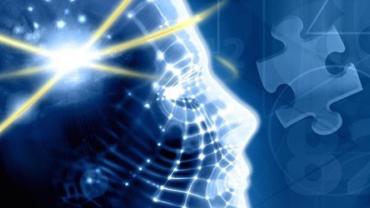
According to a study published last week in the Journal of Pediatrics researchers found that young adolescent male student ice hockey players had a significantly increased risk of prolonged post-concussion symptoms compared to older players.
In this study performed at Hasbro Childrens Hospital (RI) Boston Children's Hospital (MA) and South Shore Hospital (MA) researchers assessed the variations in age size and physical maturity among adolescent ice hockey players 13 to18 years old who have had suffered from a concussion. The research team found that less physically mature players took an average of 40% longer to recover compared to the more physically mature players. In addition the study demonstrated an increased probability of experiencing prolonged concussion symptoms among lighter weight males and heavier weight females.
These results further highlight the significance and awareness of concussion in young athletes. They also confirm the increased risk in younger more talented athletes "playing up" on varsity teams demonstrating the need for student athletes involved in collision sports to compete with similar-aged players. Currently it is not uncommon for younger smaller players to play against older athletes who have increased strength power and speed.
Concussion has been reported to be the most common youth ice hockey injury. It represents more than 15% of all injuries in 9 to 16 year old players and close to 25% of injuries among male high school players.
The results of this study challenge the opinion that collision sports be postponed until freshman year when the young athlete reaches age 14. In this study 65% of freshman male hockey players were in early stages of pubertal development and none of them were postpubertal.
These findings further suggest that adolescents may have longer recoveries from concussions than adults. These results were also seen in a previous study I shared two years ago in The American Journal of Sports Medicine.
Medical treatments for post-concussion symptoms have consisted mainly of opiates (for headaches) antidepressants anti-nauseas anti-vertigo meds and stimulants as well as various medications to increase neurotransmitter levels.
The traumatic forces involved in concussion have been shown to result in a decrease of glucose use by the brain and changes in cerebral blood flow (as seen in those with post-concussion syndrome).
Nutrient Considerations
Glycerophosphocholine (GPC) is a form of choline that has been shown to protect and repair damaged brain cells.1 It is often used to help prevent damage to brain cells after blood flow and thus oxygen has been cut off to those cells. GPC also supports the brains ability to recover after traumatic brain injuries and helps reduce the symptoms associated with concussion and post-concussion syndrome.
In one study 23 patients who suffered from concussions and cerebral contusions were given GPC for a three month period. At the end of the study 96% of the patients mental faculties had improved significantly.2
Other brain-supportive nutrients to consider include acetyl-l-carnitine inositol phosphatidylserine fish oil krill oil and MCT oil.
By Michael Jurgelewicz DC DACBN DCBCN